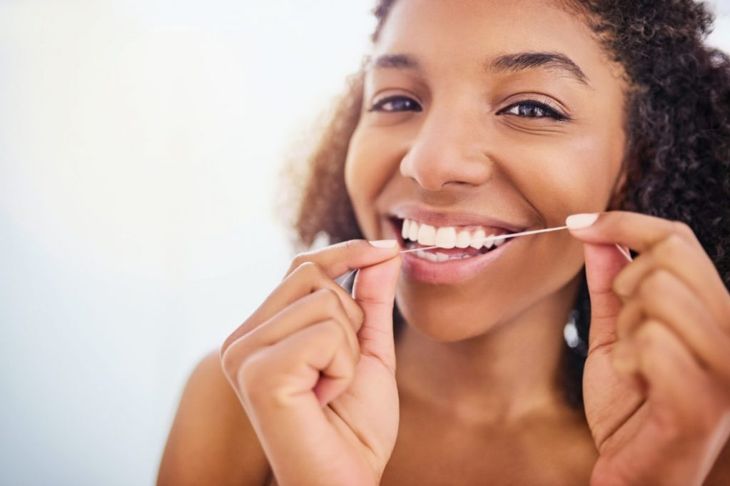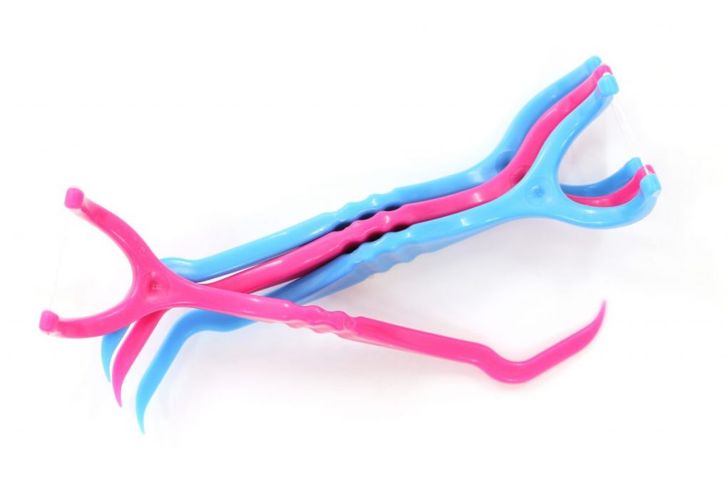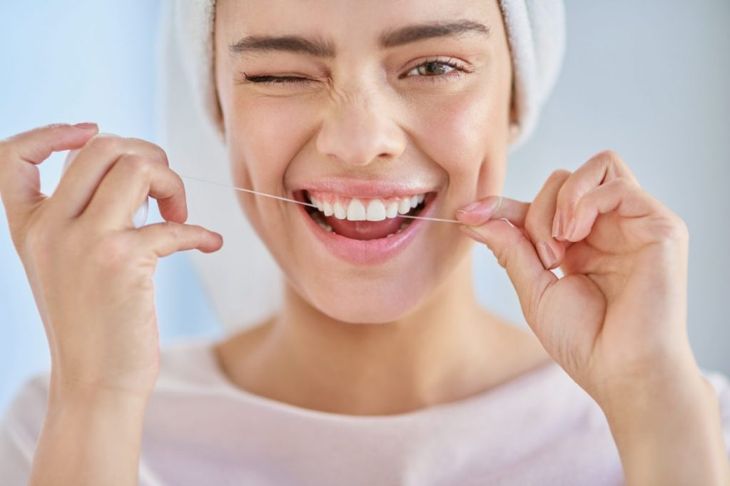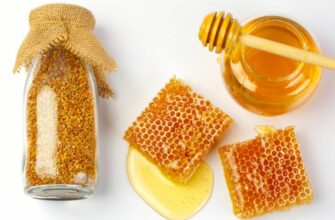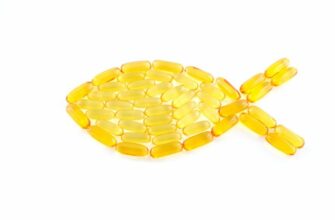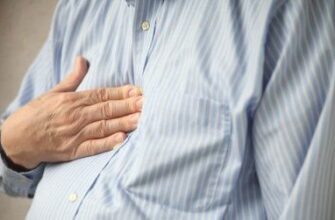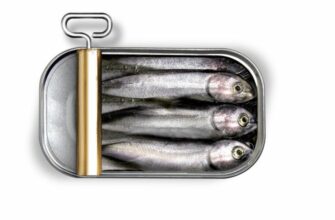Oral care impacts more than the mouth. Good oral health has major impacts on physical health and wellbeing in general. Toothbrushing is a key part of oral care, but interdental cleaners such as floss are just as important. They remove trapped food and bacteria from between the teeth that toothbrushes may miss. Organizations such as the American Dental Association affirm that flossing and brushing together are more effective than using either method exclusively.
Correct Flossing Method
To take full advantage of the benefits of flossing, it’s important to first understand the correct way to floss. Flossing begins by wrapping and holding the floss in a c-shape. After roping the floss on either side of a tooth, move the floss up and down around the tooth. The floss should clean about half the diameter of each tooth from as many angles as possible. The gum tissue under the tooth also requires flossing. Though this may seem simple, a 2015 study suggests that a majority of people either neglect to brush oral surfaces or use floss incorrectly.
Actual Effectiveness
Occasionally, headlines and studies appear that argue flossing isn’t helpful or necessary. A few years ago, the Associated Press performed an investigation that suggested there is insufficient proof that flossing is beneficial. Some of the arguments focus on older studies being unreliable, inaccurate, or biased. However, the American Dental Association, UK National Health Service, the Australian Dental Association, and many other organizations defend flossing as necessary for good oral health. Many dentists describe flossing as being low risk and low cost. If, ultimately, flossing does turn out to be unnecessary, it is unlikely doing so with the proper technique causes any damage.
Benefits of Flossing
Not flossing could put a person at risk for two serious dental conditions: gingivitis and cavities. Studies show there are more than 1,000 bacteria in dental plaque. Flossing prevents these bacteria from accumulating and hardening. If a person doesn’t floss, the bacteria can destroy tooth enamel and cause cavities. The bacteria can also irritate gum tissue, causing it to become inflamed and bleed, leading to more bacteria and gingivitis. Without treatment, gingivitis can become very detrimental, even affecting heart health.
Risks of Flossing
There are several possible risks of flossing, though the majority come from improper technique or using inappropriate materials. However, a recent study found that some accepted types of floss contain perfluorohexane sulfonic acid. Researchers have linked this acid to high cholesterol and abnormal thyroid function. Other flosses may have polytetrafluoroethylene, which is harmless in most instances, but when present in floss can lead to cancer, hormone disruption, and brain problems. Research before a floss purchase can help prevent interaction with these chemicals.
Floss Threaders
Many people avoid flossing because it is difficult or messy. Thankfully, many products can make flossing significantly easier. A floss threader is a simple disposable tool that acts similarly to a sewing needle. To use a floss threader, a person simply inserts about half of a foot-long piece of floss into the threader and works the threader through dental implants or large tooth gaps.
Floss Picks
Another product that remains popular is the floss pick. These disposable plastic tools hold a small section of floss on one end. The other end usually tapers into a toothpick-like point that can dislodge larger bits of food or plaque. Floss picks are easy for people to use because they can fit in one hand and often have a shape that helps the pick reach into the mouth. However, it is possible that floss picks simply redistribute bacteria because the person uses only a small section of floss for their whole mouth.
Water Flossing vs. String Flossing
For people who dislike floss but still wish to receive the benefits of flossing, water picks may be a suitable replacement. Essentially, a water pick acts as a small hose, directing a powerful stream of water to dislodge food particles from the teeth. Research to determine the effectiveness of water picks is often contradictory. Some studies show traditional floss is better, while others show that water picks are just as effective. Different strengths of water picks can clean different levels of plaque, though most can reduce bacteria near the gumline. Notably, water picks are less likely to cause gum bleeding, which can help prevent bacterial infections.
Brushing and Flossing Order
Many people wonder if there is a proper order for oral care. Specifically, if they should brush first or floss first. Generally, there is no correct order. As long as a person brushes and flosses with the correct techniques, they will still receive the benefits. Some people find that flossing prior to brushing helps to better ensure that they wash flood particles from their mouths. Many individuals skip flossing after brushing because their mouth feels clean. This is a poor metric to decide whether or not to floss, as many food particles may be too small to feel.
Reusing Floss
Because floss doesn’t always appear dirty after use, some people wash their floss string and reuse it. Most dental associations around the world heavily discourage this behavior. In addition to floss fraying and breaking upon second use, leaving small threads between the teeth, a simple wash with water is unlikely to remove all of the mouth bacteria from the string. Reusing floss simply redistributes the bacteria through the mouth.
Best Time to Floss
Growing up, people hear many different stories and pieces of advice about when to floss. Some people floss in the morning after they brush their teeth, while others may only floss after a meal. Some people may choose to floss before bed. Most dentists accept that there is no proper time to floss as long as a person flosses at least once a day with the proper technique. It may be beneficial to floss as part of a morning routine, simply because you are less likely to forget to do it.

 Home
Home Health
Health Diet & Nutrition
Diet & Nutrition Living Well
Living Well More
More

